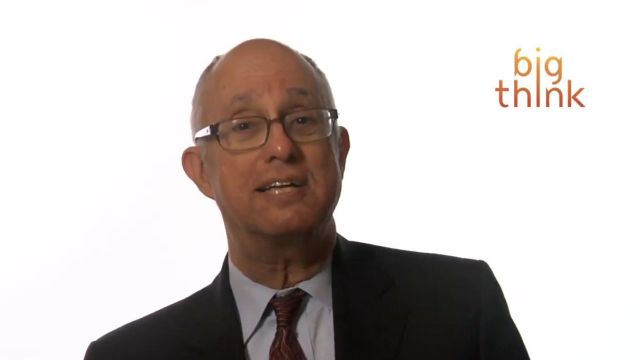Stanford’s Robert Sutton: “I Don’t Like Failure, But…”

“I don’t like failure,” says Robert Sutton, professor of organizational behavior at Stanford University. “It’s a terrible thing. I wish it wasn’t necessary, but I can’t figure out any other way for people to learn how to do most things, but to sort of screw up enough until the point where they get better at it.” Even today’s “hero” bosses, such as Facebook’s Mark Zuckerberg and Apple’s Steve Jobs, have made their share of mistakes, says Sutton.
Culling examples from his years of research, Sutton shares his take on what matters in being a great boss in his interview with Big Think
“All human groups—and the research shows, anthropological research going back to preindustrial times—we actually want the same kind of leader,” he says, “but the nuances are different depending on the generation. … It turns out is we want a boss who is competent and not selfish … a boss who is good at performance, getting performance out of people, training them, supporting them in doing their job well and supports dignity and respect,” he adds.
Of the millenial generation’s job-hopping ways, Sutton says in the words of his students, “They learned not to trust the man, that the man is going to screw them in the end.”
“It always sort of amazes me when I see executives from big corporations and they say, ‘I don’t know why they don’t trust me.’” Sutton says. “Essentially the employment contract has changed,” he say, due to firings and companies not providing adequate career stability. “So my perspective on the Millennials is no wonder you act that way.”
Not every boss is good, and many are quite bad. Yet even bad bosses are an opportunity to learn, in this case what not to do. “I have received literally thousands of asshole stories and there is a certain genre, which I just love, which is that I learned from my boss how not to act the rest of my life.” Some of the greatest bosses have patterned their management style after how not to do things based on a bad boss early in their career, says Sutton.





